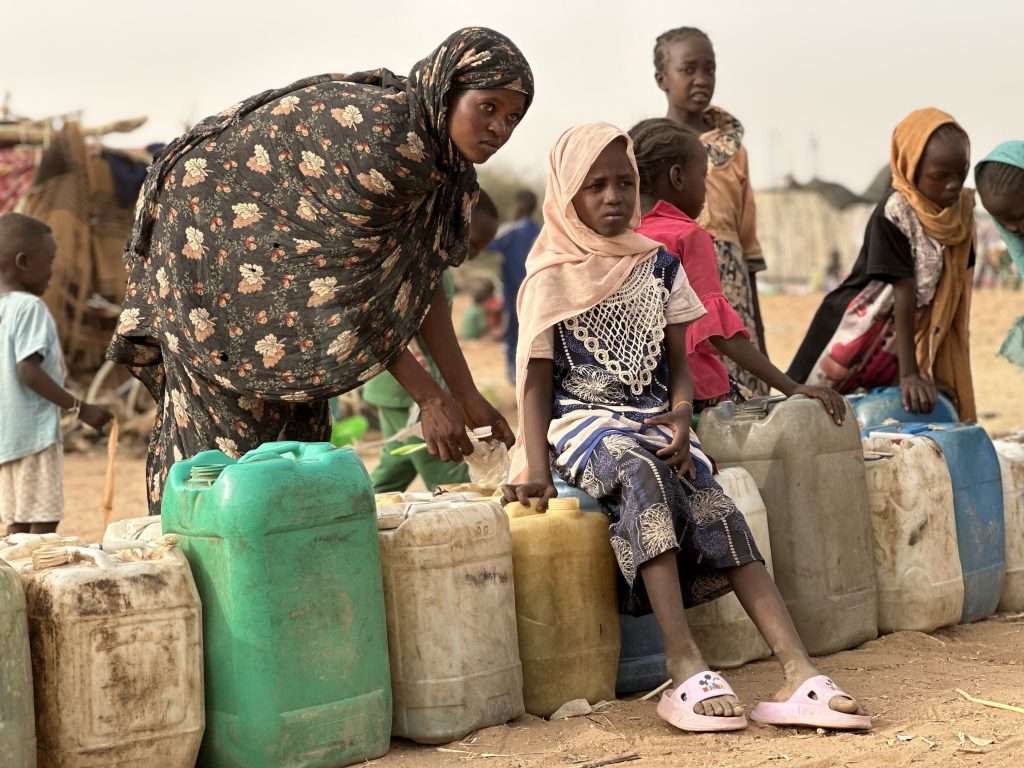New vaccine shows promise as cholera spreads across Sudan

Fatality rates in Sudan are expected to soar as cholera continues to plague the country. The crisis is expected to worsen in the summer months, with cholera cases spreading to all but one of Sudan’s states, the World Health Organisation (WHO) reported on 14th July.
The outbreak has expanded to all but one of Sudan’s 18 states, Central Darfur State, despite a decrease in the number of cases in Khartoum State. The rate of the spread is alarming, due to the restricted access and the already severe humanitarian and health problems in North, South, West and East Darfur states as well as North, South and West Kordofan states.
In 2025, Sudan saw two surges of cholera cases, one in March and the second in May. WHO noted that the surges are likely linked to attacks on power and water system infrastructure and the increase in conflict that has severely compromised access to safe water and adequate health care.
In May, almost 100 people were killed by a cholera outbreak in Khartoum, Sudan’s capital, Maghrebi.org reported. In just two days, local authorities said that at least 70 people were killed by the disease.
On the first day, 1,177 cases and 45 deaths were reported by the health ministry in Khartoum. On the following day, the health ministry recorded 942 new infections and 25 deaths.
In one week alone, 172 people died of cholera. According to the federal health ministry 90% of the victims were the in Khartoum State. The war has put 90% of hospitals out of use and aid workers have warned that the outbreak is being exacerbated by the near-total collapse of healthcare services.
“We are racing against time … to provide basic healthcare, clean water and good nutrition,” Sheldon Yett, UNICEF’s representative in Sudan, said. “Each day, more children are exposed to this double threat of cholera and malnutrition.”
Since July last year, cholera has infected 87,219 people and killed more than 2,260 people. Health experts have linked the outbreak to the lack of access to safe water, sanitation and hygiene caused by the breakdown of water supply systems, adding that the spread is also fueled by displacement and limited amounts of medical supplies for the management of cases.
While the Khartoum State saw rapid outbreaks in May, a 10-day oral vaccination campaign has led to cholera cases in Khartoum State declining, a report by International Media Corps found. The vaccination program, launched in June, has reached more than 2.24 million people and covered 96% of the area, including twelve hot spots in 5 at-risk communities.
By prioritising increasing access to safe water, sanitation and hygiene, the campaign has contributed to a sustained fall in the number of new cases. Response measures have also been implemented to tackle the rapid spread of the disease, such as case management, surveillance, risk communication and community engagement.
Prior to the campaign, Khartoum State was recording around 1500 new cases a day. After the program, as of the second week of July, there has been just 10 to 11 new cases being registered each day.
“The World Health Organization is coordinating the response with Sudan’s health authorities and our teams are on the ground providing technical assistance and capacity-building. We are also dispatching cholera and other essential medical supplies to affected localities,” said Dr Shible Sahbani, the representative for WHO in Sudan. “We are exploring all possible ways to deploy medical supplies and technical support to the hard-to-reach Darfur and Kordofan states, including cross-border operations through Chad and South Sudan.”
As the vaccination campaign continues to reduce the disease in Khartoum State, June saw the emergence of cholera in crowded displacement camps in Tawila.
The three-year conflict in Sudan has displaced 13 million people and created the world’s largest displacement and hunger crisis. The first 14 months of the conflict killed more than 61,000 people, a report by the London School of Hygiene and Tropical Medicine’s Sudan Research Group found.
Families in the Tawila camps have been escaping horrific violence from other settlements, according to the Norwegian Refugee Council. One attack in April on the Zamzam and Abu Shouk camp killed around 400 people. Aid workers were killed, and women and girls were subjected to widespread sexual violence. Those who survived the assault, fled to Tawila.
As of now, the cholera response is slowly being expanded from the oral vaccination campaign in Khartoum. With a focus on high-risk areas, International Media Corps has deployed two Rapid Response Teams (RTTs) in Jabal Awliya, a villiage in northern-central Sudan, and Ombadah, a neighbourhood in the west of Khartoum State. The RTTs will carry out disease surveillance, investigate suspected cases and promote health and hygiene within communities.
World Health Organisation (WHO), Maghrebi.org, International Media Corps, London School of Hygiene and Tropical Medicine’s Sudan Research Group, Norwegian Refugee Council
Want to chase the pulse of North Africa?
Subscribe to receive our FREE weekly PDF magazine













